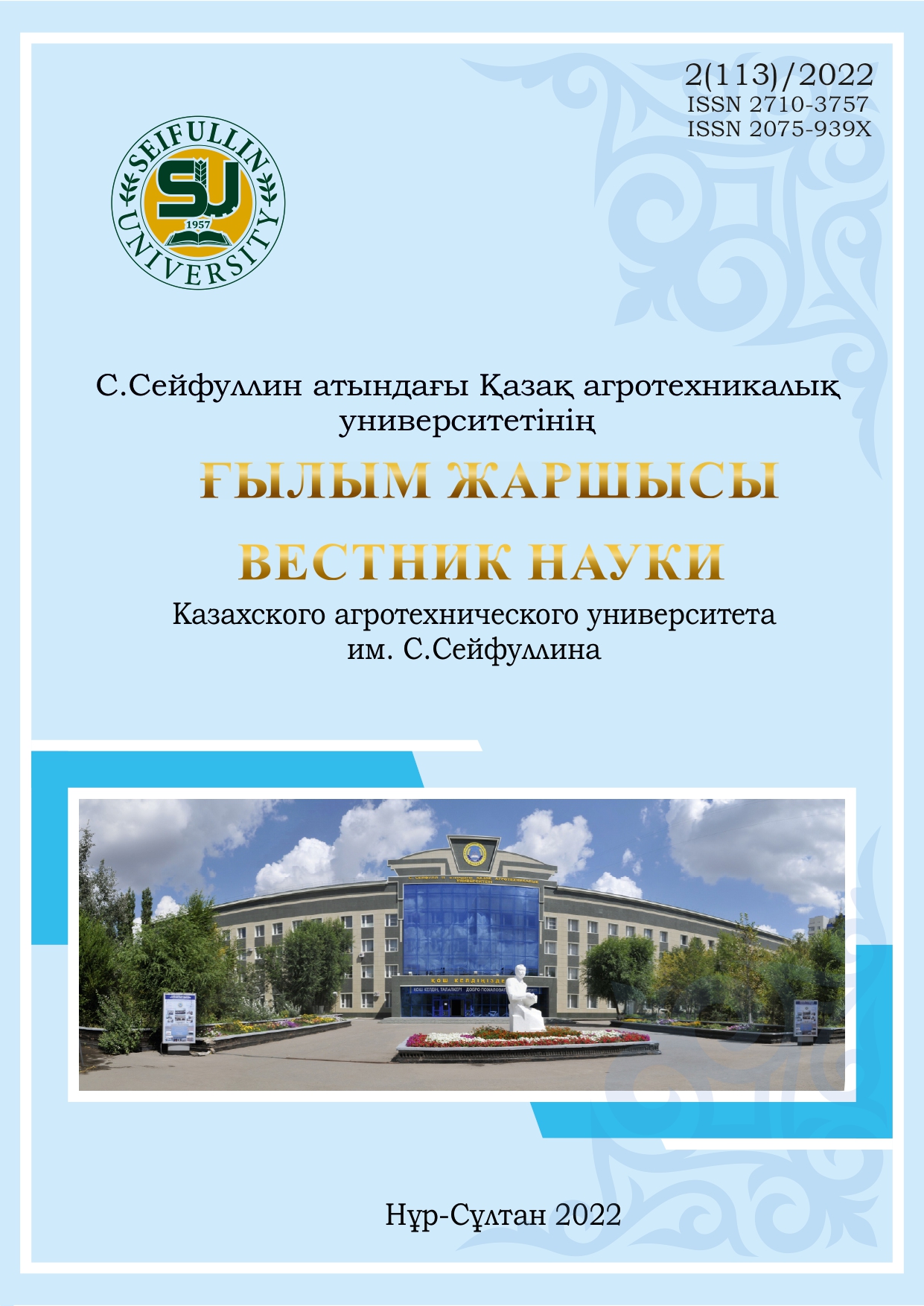ВЛИЯНИЕ РАЗЛИЧНЫХ ДОЗ ОРГАНИЧЕСКОГО УДОБРЕНИЯ ИЗ ПТИЧЬЕГО ПОМЕТА НА ЧИСЛЕННОСТЬ ПОЧВЕННЫХ МИКРООРГАНИЗМОВ В РИЗОСФЕРЕ ЛЬНА МАСЛИЧНОГО
DOI:
https://doi.org/10.51452/kazatu.2022.2(113).1052Ключевые слова:
органическое удобрение; птичий помет; лен масличный; почвенные микроорганизмы.Аннотация
В статье представлены результаты исследования микробиологических свойств почв при внесении различных доз органического удобрения на основе птичьего помета. Органическое удобрение оказало влияние на численность микроорганизмов в почве, изменив соотношение отдельных групп, участвующих в почвообразовательных процессах. Отмечено преобладание протеолитических бактерии, усваивающие органические формы азота, по сравнению с амилолитическими бактериями, использующие минеральные формы азота. Это свидетельствует о снижении потребления минеральных форм азота и усилении разложения органических веществ. Высокие дозы органического удобрения (10-15 т/га) способствуют размножению азотфиксирующих бактерий. В фазу цветение-бутонизации в ризосфере льна масличного произошел рост мицелиальных грибов, когда растение особенно уязвимо к различным типам болезней, а в фазу полного созревания происходит активный рост целлюлоза разрушающих актиномицетов. При воздействии оптимального количества питательных компонентов из органического удобрения происходит регуляция многих биохимических и физиологических процессов в микроорганизмах. Обилие микроорганизмов способствует повышению биологической активности почвы, что благоприятно для сохранения природного плодородия и снижения негативного влияния неблагоприятных факторов на агроэкосистему.

